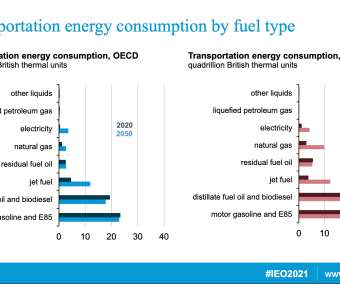Today’s Stunted Oil Prices Could Cause Oil Price Shock In 2020
Green Car Congress
MAY 24, 2017
As oil prices remain unsteady and OPEC continues to make headlines every hour, the world is focused on oil’s immediate future. In a speech made at the Association of International Petroleum Negotiators’ 2017 International Petroleum Summit, Johnston laid out his concerns for the future of oil.





























Let's personalize your content